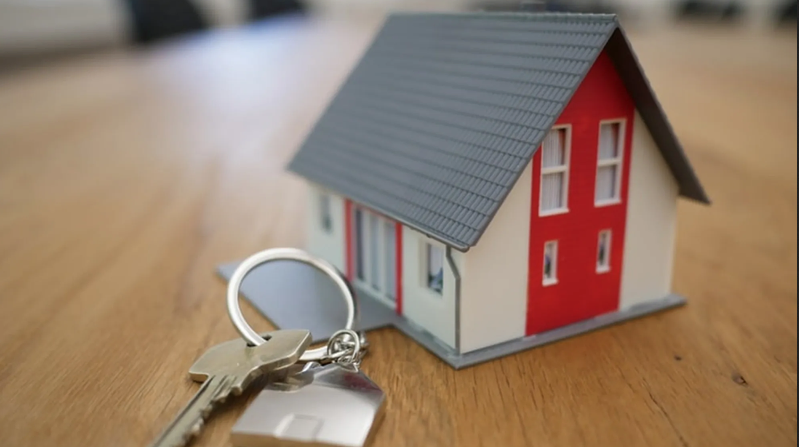Reasons that people choose to downsize can range from wanting a simpler lifestyle, to reducing expenses, or feeling that the property they live in is too big for their needs.
Claude McKirby, co-principal, Lew Geffen Sotheby’s International Realty in Cape Town’s Southern Suburbs and False Bay, said that homeowners often make the decision too late because of the strong emotional ties to their home.
McKirby said: “In most cases, it’s better to make the move to a smaller home while you’re still fit and healthy and able to not only make the move with ease but to embrace and enjoy the next chapter of your life.”
This is what people should consider when deciding on the right time to make the move.
Empty nest
Once a home feels like a empty nest and the kids are gone, the house can feel too large, with rooms sitting empty and extra space going unused.
If you’re finding that your home is now a burden to clean or maintain, this may be a sign that it’s time to move to a smaller place.
Key consideration: Before making the move, you should ask yourself if your children will need to return home temporarily. You should also think whether you will need the space for future family gatherings, especially if you anticipate grandchildren.
Maintenance is becoming a challenge
As homes age, maintenance needs increase and upkeep can become both time-consuming as well as expensive.
If you find it difficult to keep up with maintenance or repairs are becoming a financial burden, it might be the time to consider a smaller, lower-maintenance home.
People tend to go for townhouses, simplexes or apartments in complexes that offer amenities that are handled by the homeowner’s association (HOA).
A smaller property can reduce the stress of maintaining a larger home, freeing up more time for hobbies, travel, or relaxation.
Key consideration: Be mindful of the costs associated with HOA fees and ensure that these costs are not more than the savings from reduced home maintenance.
Financial considerations
A smaller home generally costs less to maintain, heat, cool, and insure, so selling a larger home and purchasing a smaller one may allow you to pay off your mortgage and even boost your retirement savings.
Downsizing can reduce property taxes, allowing you to make savings if you move into a smaller home or a property in a less expensive neighbourhood.
For retirees or people who are approaching retirement, these savings can make a huge difference in stretching their budgets.
Key consideration: Make sure to account for all costs associated with selling, moving, and purchasing a new home. Smaller homes can come with large upfront costs like transfer fees, potential renovations, and moving expenses.
Lifestyle change
Downsizing can offer you the chance to embrace a simpler, more streamlined lifestyle.
Moving to a smaller space can allow you to declutter and minimise your belongings, allowing you to focus on experiences rather than possessions.
Smaller homes in complexes in urban or retirement communities can provide access to more amenities like walking paths, parks, or cultural attractions.
Key consideration: Think about what you want your new lifestyle to look like. Consider proximity to amenities, transportation, family, and hobbies. This move should suit your needs today and for the future.
Spending time in a few rooms
If you rarely go beyond a few key rooms in your house, it might be a sign that you are ready to downsize.
As families grow older or circumstances change, the need for multiple bedrooms, large dining rooms, or expansive living spaces diminishes.
Key consideration: If you are heating, cooling, and maintaining rooms you rarely use, downsizing can lead to significant savings on utility costs.
Health or mobility concerns
As people age, large homes with multiple storeys or huge layouts can become difficult to navigate.
Downsizing to a single-storey home or a home with accessibility features such as wider doorways, grab bars, and ramps can improve safety.
Moving to a smaller home or a retirement community often means access to services that can help with medical needs, social activities, or home maintenance.
Key consideration: If you anticipate needing assistance with mobility in the future, look for homes or communities that are equipped to meet your needs as you age and that are in close proximity to healthcare services.
The real estate market is favourable
If your current home is in a desirable area and property values are high, it might be time to sell and take advantage of the market.
Downsizing during a seller’s market could give you financial flexibility to purchase a smaller home in a more affordable area or invest elsewhere.
Key consideration: Even if the market is hot, remember that your next home purchase should make financial sense. Don’t rush into a new property just because the market is good for sellers, instead ensure that your next home meets your long-term needs.
Stay informed with The Namibian – your source for credible journalism. Get in-depth reporting and opinions for
only N$85 a month. Invest in journalism, invest in democracy –
Subscribe Now!










